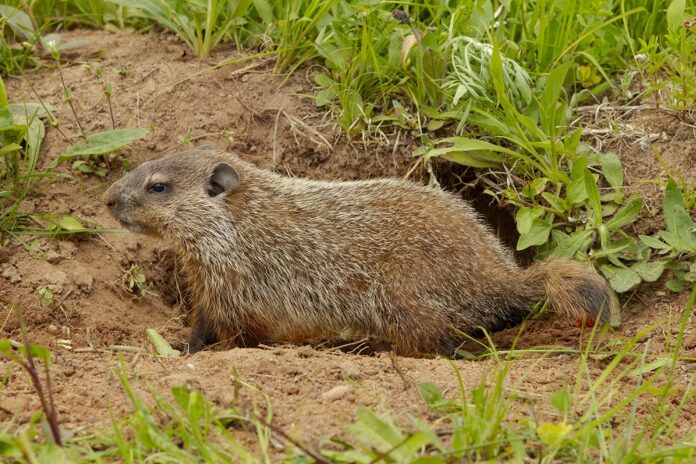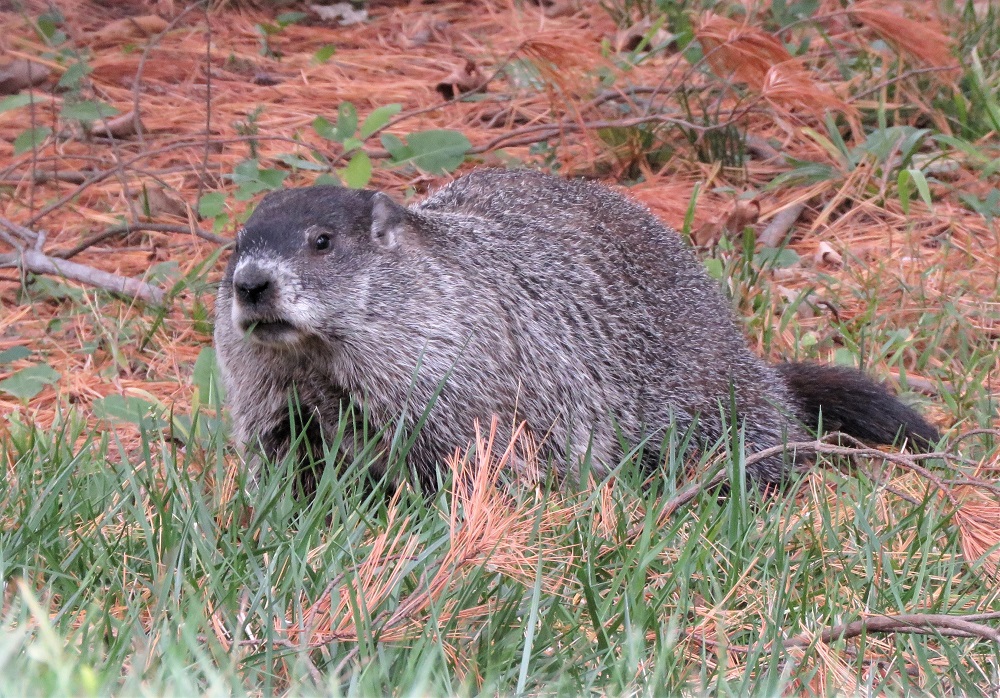

The groundhog “Phil” who lives in Punxsutawney, Pennsylvania, is the official groundhog of the U.S., but Iowa also has an abundant supply of these critters.
There is a small hill north of my house in the corner of a field that is not tilled. I have seen groundhogs in this place for many years. Last summer a female with two babies lived in a labyrinth of burrows dug in the clay hillside. When I walked near them, the mother groundhog gave out a whistle, and they ran into the opening of the den below a large rock.
The folklore belief is that if the groundhog comes out of his hole and sees his shadow, he will get scared and return to the den, causing six more weeks of winter.
This the only time that a sunny day is a bad omen. This tradition was introduced by German settlers and has been celebrated since 1886. Groundhog Day corresponds to the Christian church day of Candlemas and is also the time when some fieldwork began in Europe.
Groundhogs, also called woodchucks, range from the northeast part of the U.S. to the Midwest. These rodents are members of the squirrel family and can climb trees, but usually when they are frightened they run to the protection of their underground den.
They are brown animals that have short ears, a short tail and are stout looking. They can weigh more than 10 pounds. Another prominent feature is their four large front teeth, which grow one-sixteenth of an inch per week. The groundhogs must gnaw and chew trees and roots to keep their teeth worn down.
During the summer they are frequently seen by roadsides, standing on their hind legs and eating food that they hold in their front paws. Some of their favorite foods are apples, tomatoes and sweet corn. The groundhogs on my place seem to take a bite or two out of a tomato and then move on to sample the fruit of the next vine. They will also eat alfalfa and dandelions.
In the western mountains of the U.S., there is a similar species of animal called the yellow-bellied marmot. The marmot is somewhat smaller and lives in colonies, whereas the groundhogs in Iowa are solitary creatures.
The groundhog is considered a pest by some people because it will dig burrows under building foundations and weaken the structure. The tunnels that they dig are three to six feet deep and have several openings to the surface. The maze of tunnels can be up to 45 feet long, linking many different rooms.
During the winter, the groundhog goes into a true hibernation. The animal’s body temperature drops, and its metabolism and pulse rate becomes extremely slow. During this time, the animal is living off its stored body fat.
The male comes out of hibernation before the female and begins his search for new territory and for a female to breed. For the rest of the time, he lives alone, and the female is left to take care of the young. She will have from two to six babies in April and will care for them until the end of summer. At that time, she chases them away from her den, and then they fend for themselves.
Records show that the groundhog’s prediction is accurate 39% of the time. If Punxsutawney Phil comes out of his den on Feb. 2 and sees his shadow, we could have six more weeks of winter weather.
















